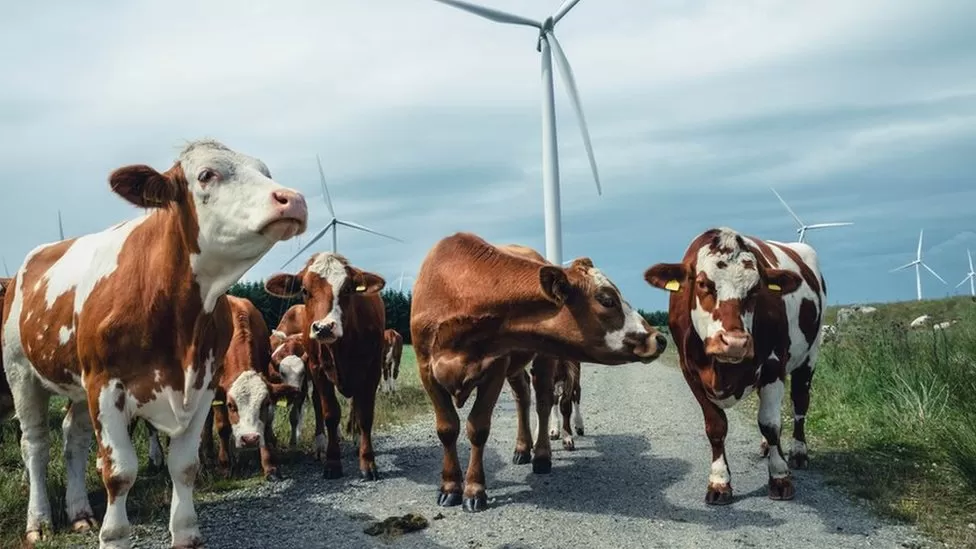A new commitment to reduce fossil fuel use to tackle climate change was agreed at the COP28 summit in Dubai.
The deal emphasises the importance of reaching “net zero” by 2050 to avoid the worst consequences of global warming.
What does ‘net zero’ mean?
Net zero means no longer adding to the total amount of greenhouse gases in the atmosphere.
Greenhouse gases include carbon dioxide (CO2) and methane. CO2 is released when oil, gas and coal are burned in homes, factories and to power transport. Methane is produced through farming and landfill.
These gases increase global temperatures by trapping extra energy in the Earth’s atmosphere.
Meanwhile, rapid deforestation across the world means there are fewer trees to absorb CO2.
Under the 2015 Paris climate agreement, 197 countries – including the UK – agreed to try to limit global temperature rises to 1.5C by 2100.
To achieve this, CO2 emissions need to fall by nearly half by 2030 and reach net zero by 2050, according to the UN’s climate body, the IPCC. But these emissions remain at record highs.
Would net zero mean a complete end to greenhouse gas emissions?
Not all emissions can be reduced to zero, so those that remain need to be matched by actively removing greenhouse gases from the atmosphere.
Natural removal methods include planting trees and restoring peatlands.
There are also human-made machines – at very early stages – which are capable of removing CO2 directly out of the air.
Carbon capture is a related technology, where CO2 produced in power stations or other industrial processes is captured before it is released into the atmosphere, and stored underground.
While these technologies could be important in future, they are expensive, and can currently only cancel out a very small fraction of greenhouse gas emissions produced.
They are not a substitute for making drastic cuts to fossil fuel use, the International Energy Agency warns.
What is the problem with net zero targets?
There’s controversy about how some countries might try to reach net zero.
For instance, a country might record lower emissions if it imports energy-intensive goods from overseas, rather than producing the goods itself.
But in reality, it wouldn’t have reduced the total amount of greenhouse gases going into the atmosphere.
There are also schemes that enable rich countries to offset their emissions by paying poorer countries to switch to cleaner fuels.
But some climate scientists worry this could let wealthier nations avoid reducing their fossil fuel usage, by taking advantage of a switch to cleaner fuels in poorer countries which may have happened anyway.
What will net zero mean for individuals?
While the most significant changes need to come from government, individuals can also play their part to help reach net zero.
This could include:
- taking fewer flights
- reducing energy use
- improving home insulation and energy efficiency
- switching to electric vehicles
- replacing gas central heating with electric systems such as heat pumps
- eating less red meat
Source https://www.bbc.com/news/science-environment-58874518

